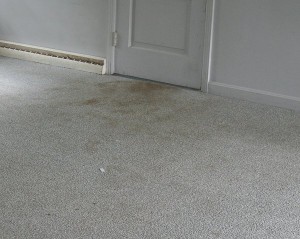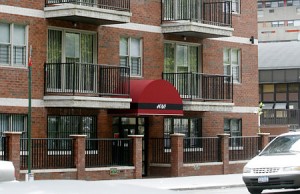Posted by Teresa on August 27, 2009 under General | 
 The most common cause for evicting a tenant is probably nonpayment of rent. Experienced landlords do not hesitate to begin eviction procedures when tenants are in arrears on rent. So if you plan toever evict a tenant, then think like a Boy Scout—and be prepared.
The most common cause for evicting a tenant is probably nonpayment of rent. Experienced landlords do not hesitate to begin eviction procedures when tenants are in arrears on rent. So if you plan toever evict a tenant, then think like a Boy Scout—and be prepared.
Be prepared for excuses: You might hear about your tenant’s difficulties, whether from the economy, job loss, health, or even the weather. You could hear that there is damage or mold in the unit that renders it uninhabitable. You might hear any number of reasons why your tenant has not paid the rent—which is the only thing that matters. As landlord, you are entitled to decide whether or not to evict based on the tenant’s situation. Just be prepared for nonpayment of rent to occur again.
Be prepared with all the eviction paperwork required by your local court. Some want a copy of your deed, the lease, the exact names of everyone living in the rental unit (whether or not they are on the lease) and copies of all notices to pay rent or quit (evict). Your jurisdiction may want more information, so be sure to ask the clerk of court or magistrate’s office. You’ll also need proof of non-payment, so gather up all check copies for the tenant for at least the previous year.
Be prepared to hire a lawyer. If you have never evicted a tenant before, many experienced landlords would strongly recommend you hire a Landlord/Tenant attorney before proceeding with eviction. They can keep you from making crucial mistakes and losing your case.
Be prepared to spend money. There will be fees associated with preparing your case. And if you decide to hire an attorney, you will be responsible for his or her fee, as well.
Be prepared to follow the court’s procedures. The court will require you to fill out paperwork correctly and follow every procedure to the letter. If you don’t, you could have your eviction case thrown out and have to start again. Consider observing a day in court when they hear eviction cases—seeing other landlord’s eviction errors could help you avoid them.
Be prepared for a fight. Your tenant may not even show up for court. If so, you will likely win your case. But if they do appear, remember that tenants have rights, too, and are entitled to plead their case before the judge. Be prepared to defend yourself. You may hear things that will surprise you, but stick to the facts and avoid arguing or confrontation.
Eviction is never easy, but it is a part of being a landlord. Just remember to be well prepared for whatever surprises may come up!
Posted by Teresa on August 25, 2009 under Landlord Tips, Rents and Deposits, Tenant Credit Checks | 
 As the housing marketing continues to struggle, many landlords are finding themselves in a tough spot. Perhaps you’re one of them: vacancies are rising, your bank is tightening up your credit line and won’t refinance your mortgage, and you really need a positive cash flow.
As the housing marketing continues to struggle, many landlords are finding themselves in a tough spot. Perhaps you’re one of them: vacancies are rising, your bank is tightening up your credit line and won’t refinance your mortgage, and you really need a positive cash flow.
If your tenants are smart, they know that in some areas, it’s a renter’s market—and they could be planning to ask you for a rent reduction, especially if they feel they’re paying more than the market dictates.
What should a landlord do if a tenant asks for lower rent?
- Determine whether or not your tenant has a valid case for a reduction in rent. Look at your local rent market, and compare your rents to similar units. You should always be aware of the fair market value in your area—and there are plenty of resources to guide you.
- Analyze your cash flow. If you determine your rent is above market value, but you can’t lower the rent and stay profitable, look for ways to reduce expenses. Perhaps you can take over landscaping duties from your contracted service. Or, perform small repair and maintenance yourself for awhile. You could even offer a compromise, such as keeping the rent the same, but covering some utility costs.
- Analyze the tenant’s history. Does the tenant pay on time every month? Have there been any complaints against them? How careful are they with your property? If they have been a great tenant, compare the rent reduction request with the hassle of finding a new tenant. You may find that peace of mind will make the reduction more palatable.
- Advise that you will be conducting a tenant credit check—and then follow through. If your tenant’s credit status has changed since the lease was signed, a thorough screening is the only way to find out. You may discover credit problems that indicate the tenant is not a good candidate for lower rent negotiations.
As a landlord, you are in a constant balance act to obtain and keep good tenants who pay on time. As the economy starts to slowly recover, you may have to concede to belt-tightening or reducing rents in order to attract and keep your best tenants.
Posted by Teresa on August 21, 2009 under Fair Housing Act, Landlord Tips, Tenant Screening & Background Checks | 
 The Fair Housing Act, also known as Title VIII of the Civil Rights Act of 1968, prohibits landlords from discriminating against applicants on the basis of race, color, national origin, religion, sex, family status and disability. Various Executive Orders cover more details, such as requiring federal agencies to promote and further fair housing in the programs and prohibiting discrimination in the sale or leasing of properties owned by the federal government or provided with federal funds.
The Fair Housing Act, also known as Title VIII of the Civil Rights Act of 1968, prohibits landlords from discriminating against applicants on the basis of race, color, national origin, religion, sex, family status and disability. Various Executive Orders cover more details, such as requiring federal agencies to promote and further fair housing in the programs and prohibiting discrimination in the sale or leasing of properties owned by the federal government or provided with federal funds.
The FHA covers most housing in this country, but there are certain exemptions in some circumstances. If you need to know if your circumstances qualify for an exemption, check with your attorney.
Specifically prohibited actions based on the definition of the FHA in leasing situations include:
- Refusing to rent housing
- Making housing unavailable
- Setting different terms, conditions, or privileges for rental of a dwelling
- Providing different housing services or facilities
- Falsely denying that housing is available for inspection or rental
It is also illegal to threaten, coerce, intimidate or interfere with anyone exercising or assisting others to exercise their rights under the FHA, and to advertise or make a statement that indicates any limitation to housing or preferential treatment in offering housing based on race, color, national origin, religion, sex, family status, or disability.
In addition, the Fair Housing Act prohibits landlords from discriminating against tenants with physical and mental disabilities, and requires them to allow reasonable modifications to the dwelling unit to accommodate their disability. This can be done at the tenant’s expense, and, where reasonable, you may require that they return the unit back to its original condition when they move out. For example, allowing a disabled tenant special parking when requested is required.
Landlords are also required to make reasonable accommodations for disabled tenants who require service animals. Even if you have a “no pets” policy, you must allow service animals, which are not considered pets.
However, the FHA does not require that landlords make housing available to persons who are direct threats to the health and safety of others or who use illegal drugs.
Remember, you are within your rights when
screening tenants prior to leasing. For more landlord resources, including forms and information on
tenant screening, turn to
E-Renter.com. You’ll know that you have the best possible tenants when you
prescreen tenants.
Posted by Teresa on August 18, 2009 under Landlord Paperwork and Forms, Landlord Tips | 
 It’s vital to have a move-in checklist for each of your rental properties. It’s even more important to personally conduct a pre-move-in walk through with each new tenant. Do this before the tenant moves in!
It’s vital to have a move-in checklist for each of your rental properties. It’s even more important to personally conduct a pre-move-in walk through with each new tenant. Do this before the tenant moves in!
Your move-in checklist documents the condition of each room, along with its contents. When the tenant moves out, you’ll want to conduct another walk through to compare the condition and contents of each room with the move-in checklist. Then, you can determine any damages that the security deposit will cover.
Here’s what you should include on the move-in checklist:
Kitchen
- Condition of floors, walls, ceiling
- Number, condition, and description of light fixtures
- Number, condition, and description of plumbing fixtures
- Number, condition, description, and serial numbers of appliances
- Condition and description of sink
- Stove: number, condition, and description of racks, burners, broilers, hood
- Number and description of ice trays or condition of icemaker
- Condition and description of cabinets, drawers, knobs
- Condition and description of countertops
- Condition and description of doors, doorknobs, hinges, windows, windowsills, locks
Living Room, Dining Room, Bedrooms
- Condition and description of floors, walls, ceiling
- Number, condition, and description of light fixtures
- Condition and description of doors, closet doors, closet interiors, doorknobs, hinges, windows, windowsills, locks
- Condition and Description of thermostat
Bathrooms
- Condition of floors, walls, tub surround, ceiling
- Number, condition, and description of light fixtures
- Number, condition, and description of built-in fixtures: towel racks, soap holders, etc.
- Number, condition, and description of plumbing fixtures: faucet, toilet, sink
- Condition and description of tub and/or shower and caulking
- Condition and description of cabinets, drawers, knobs
- Condition and description of countertops
- Condition and description of closets, doors, doorknobs, hinges, windows, windowsills, locks
On each item, note any scratches, dents, stains, or malfunctioning components. Take photos of every room and everything in it. Note how many keys the tenant received.
And most important: both the landlord and the tenant need to initial each item and sign and date the bottom of the form. This is for the tenant’s protection, as well we yours. When move-out day comes, you’ll both have thorough documentation of each room and everything in it—which will facilitate the return of the security deposit.
Posted by Teresa on August 14, 2009 under Landlord Tips, Tenant Credit Checks, Tenant Screening & Background Checks | 
 Some people love being landlords. But not everyone does—and not everyone who invests in rental property is cut out for the job. It’s hard work and can be very stressful at times.
Some people love being landlords. But not everyone does—and not everyone who invests in rental property is cut out for the job. It’s hard work and can be very stressful at times.
Whether you’ve been a landlord for ten years or ten months, the time could come when you’re not sure you want to keep going. Here are some ideas for when the role of “landlord” is one you wish you could shed like a winter coat on a hot day!
1. Don’t let your properties own you. Maintaining balance is important. If you’re spending more time on property issues than you want to be, only you can make a change.
2. If you’re spending too much time maintaining your properties and making repairs, hire someone to do it for you. There are probably hundreds of handyman-type services in your area. Ask friends for recommendations and interview several before making your choice. Remember to ask for references and check them!
3. Consider a property management company: Not only will they collect the rent and fill your rental units, property managers also screen tenants and conduct background checks. Plus they handle all the bookkeeping and emergency issues! Sounds like a dream come true—but they do have certain disadvantages: property managers are not free, and unless you own multiple properties, hiring one doesn’t make sense
4. Keep your eyes on the prize: If you’re investing in real estate for the long term, remember that setbacks and headaches you’re dealing with today will be worth it when it’s time to retire, if you’ve managed your cash flow properly. Building a portfolio takes time. Be patient.
5. Find tenants you’ll enjoy dealing with. You can’t control everything about your tenants, but by carefully choosing and always screening tenants, your chances of finding folks you get along with are certainly increased. You must not discriminate against anyone based on Equal Housing laws, but properly worded advertisements and finding tenants through friends and acquaintances are two great ways to start the process.
6. Take the headache out of renting to bad tenants—before they become tenants. Credit checks will ensure you have a tenant who will more likely pay rent on time. Background checks will help you find tenants with good job histories.
Every landlord goes through difficult times. If you’re having one of those, take a deep breath, get some exercise, go on a vacation, or hire someone else to deal with your problems! If you can raise the rents to cover the increased expenses, you may find it well worth it!
Posted by Teresa on August 10, 2009 under Landlord and Tenant FAQs, Landlord Tenant Lawsuits, Landlord Tips | 
 Landlord vs. tenant issues seem to occur in the same general areas. One item that landlords and tenants frequently clash over is flooring. Whether your rental unit floors are covered with carpeting, hardwood, or tile, you and your tenants will likely have issues with them at some point. We’ve put together some guidelines to help deal with damages or requests for replacement.
Landlord vs. tenant issues seem to occur in the same general areas. One item that landlords and tenants frequently clash over is flooring. Whether your rental unit floors are covered with carpeting, hardwood, or tile, you and your tenants will likely have issues with them at some point. We’ve put together some guidelines to help deal with damages or requests for replacement.
Determine the extent of the damage. Are you seeing normal wear and tear, minor damages, or major damages?
Normal means high-traffic areas are starting to show wear.
Minor damages include:
- Carpet indentations
- Minor scratches in wood floors
- Color fading
Major damages include:
- Stains
- Burns
- Carpet wrinkling
- Deep scratches in wood
- Gouges in laminate
- Chipped or broken tiles
- Carpet odors
Determine the cause of the damage. Keep in mind that some of the above issues may be a result of the quality of floor covering or the installation method—and may not be your tenants’ fault. Improper tile installation can lead to cracks. Poor quality carpet will wear quickly. Obviously, pet stains and odors, burns, or food stains that were not present at move-in are the responsibility of your tenant.
Can the damage be repaired? Most flooring can be, so you might be able to avoid the cost of replacement. Contact a local flooring contractor or installer to provide an estimate for repair. You can require your tenant to take care of the bill if they are at fault.
How old is the flooring? Carpet and laminate will wear out. If you have 20-year-old carpet in a rental unit, then obviously, it should be replaced. And, low-quality, inexpensive carpet won’t last even five years under heavy use. The more people and animals walking on it, the quicker it will wear out! You’ll attract a higher-quality tenant with newer flooring.
So what’s the best flooring to avoid landlord and tenant issues? Unfortunately, there is no “best” flooring choice when it comes to rental units. Many landlords we hear from prefer hardwood, such as oak. It’s tough and lasts for hundreds of years with proper care. In older homes, hardwood can be painted to reduce upkeep and hide signs of wear.
If you want to install carpet, use your best judgment. Keep price and quality in line with the level of rent you are charging. Spell out your tenants’ responsibilities when it comes to caring for the floors, and thoroughly document the floor’s condition at move in and again at move out. That way, if damages occurred during the tenant’s stay, you have proof enough to deduct the amount from the security deposit—or to charge them more to cover the difference.
For more landlord resources, including forms and information on
tenant screening, turn to
E-Renter.com. You’ll know that you have the best possible tenants when you
prescreen tenants.
Posted by Teresa on August 4, 2009 under Housing Trends, Tenant Credit Checks, Tenant Screening & Background Checks | 
 As the housing market struggles to recover from its historic downturn, thousands of new condominiums remain unsold across the country. Many cash-strapped developers are turning to leasing unsold units—which can cause problems among residents who purchased theirs.
As the housing market struggles to recover from its historic downturn, thousands of new condominiums remain unsold across the country. Many cash-strapped developers are turning to leasing unsold units—which can cause problems among residents who purchased theirs.
Condos are usually rented by their owners—not by the developers of a project. But when the majority of units have not sold, developers—and their lenders—get more creative. Renting is one way to fill units and improve cash flow. And in this economy, cash is king!
But is renting to unknown tenants okay with the owners in the building? Often, it depends on numbers. A few rented units, while a risk for the developer because they can no longer be sold as “new,” are usually not a problem with the owner-neighbors. But when a majority of units are rentals, it can hurt property values—and discourage potential buyers, too. Renting condo units can become a sure way to prevent selling units—an unending cycle.
However, even if condo owners don’t like buildings inhabited by renters, there is usually little they can do about it. Most developers will reserve the right to lease unsold units in the sales contract—and buyers have already agreed to it.
If you’re a developer with unsold condo inventory on your hands, you might consider renting units to quality, pre screened tenants. You can appease unit owners by assuring them the condos will be rented only to tenants who have passed background checks, including credit checks and criminal history screening. You’ll sleep better, too, when you properly screen tenant applicants!
Besides, condo owners might consider themselves lucky to not own a unit in a certain luxury building in New York City—where the owner is renting unsold units to a homeless shelter. Sometimes you do what you have to do—and at least the homeless are benefiting.
 The most common cause for evicting a tenant is probably nonpayment of rent. Experienced landlords do not hesitate to begin eviction procedures when tenants are in arrears on rent. So if you plan toever evict a tenant, then think like a Boy Scout—and be prepared.
The most common cause for evicting a tenant is probably nonpayment of rent. Experienced landlords do not hesitate to begin eviction procedures when tenants are in arrears on rent. So if you plan toever evict a tenant, then think like a Boy Scout—and be prepared.



 Some people love being landlords. But not everyone does—and not everyone who invests in rental property is cut out for the job. It’s hard work and can be very stressful at times.
Some people love being landlords. But not everyone does—and not everyone who invests in rental property is cut out for the job. It’s hard work and can be very stressful at times.
